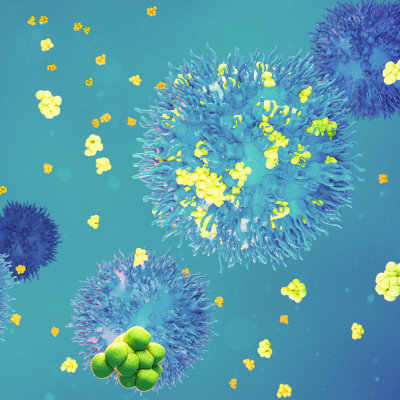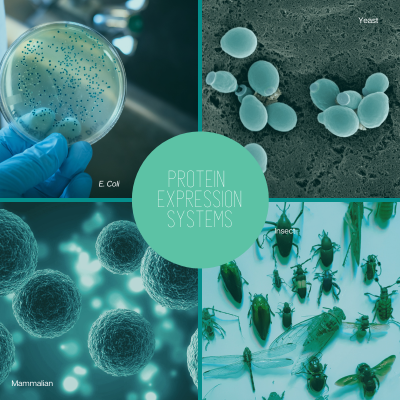Protein drugs, also known as biopharmaceuticals or biologic drugs, have indeed revolutionized modern medicine and play a crucial role in the treatment of various diseases. These drugs are derived from living organisms or synthesized using recombinant DNA technology. Unlike small molecule drugs, which are chemically synthesized, protein drugs are large, complex molecules that mimic or interfere with natural biological processes.

Here are some prominent roles of protein drugs in modern medicine:
- Targeted Therapy: Protein drugs are often designed to target specific molecules or receptors involved in disease processes. By selectively binding to these targets, they can modulate or inhibit their activity, leading to therapeutic effects. This targeted approach allows for more precise and effective treatment, minimizing side effects on healthy tissues.
- Treatment of Cancer: Protein drugs have significantly advanced the treatment of cancer. Monoclonal antibodies, a type of protein drug, can specifically recognize and bind to cancer cells, activating the immune system to destroy them. Examples include trastuzumab (Herceptin) for HER2-positive breast cancer and rituximab (Rituxan) for certain types of lymphoma.
- Immune System Modulation: Protein drugs can regulate immune responses in autoimmune disorders such as rheumatoid arthritis, multiple sclerosis, and psoriasis. Drugs like adalimumab (Humira) and etanercept (Enbrel) block inflammatory signals in the immune system, reducing inflammation and disease progression.
- Replacement Therapy: Some protein drugs are used to replace or supplement deficient proteins in the body. For example, insulin, a protein drug, is administered to individuals with diabetes who cannot produce enough of it naturally. Similarly, clotting factors like factor VIII are used in the treatment of hemophilia.
- Treatment of Infectious Diseases: Protein drugs are also being developed to combat infectious diseases. Monoclonal antibodies have shown promise in neutralizing viruses such as SARS-CoV-2 (the virus causing COVID-19) and are used as passive immunization to prevent or treat viral infections.
- Biologic Modifiers: Protein drugs can act as modifiers of biological processes, regulating cellular activities to restore or enhance normal function. For example, erythropoietin (EPO) stimulates the production of red blood cells and is used to treat anemia associated with chronic kidney disease or chemotherapy.
- Personalized Medicine: Protein drugs can be tailored to individual patients based on their genetic profiles and disease characteristics. This enables a more personalized approach to treatment, improving efficacy and minimizing adverse reactions.
Protein drugs have revolutionized healthcare by offering new treatment options and significantly improving patient outcomes for various diseases. Amidst ongoing research and development, there is optimism for the discovery of innovative protein-based therapies that could advance modern medicine. However, developing these drugs is not without its challenges. The complexity of their structure, the methods required for their production, and their potential immunogenicity all pose significant hurdles. Scientists and pharmaceutical companies must address key challenges to bring about more effective protein-based treatments.
Challenges associated with developing protein drugs
- Stability: Proteins can be sensitive to environmental factors such as temperature, pH, and agitation. Maintaining the stability of protein drugs throughout their development, manufacturing and storage is critical. Strategies like formulation optimization, lyophilization (freeze-drying), and the use of stabilizing excipients are employed to enhance protein stability.
- Delivery: Protein drugs often have large molecular sizes and complex structures, which can limit their delivery to target sites within the body. They may face challenges crossing cellular barriers, penetrating tissues, and reaching the desired therapeutic site. Researchers employ various delivery systems, such as nanoparticles, liposomes, or conjugation to targeting molecules, to improve drug delivery and enhance efficacy.
- Immunogenicity: Protein drugs, being foreign substances, can trigger an immune response in some patients. The immune system may recognize the drug as a threat and produce antibodies against it, potentially reducing its effectiveness or causing adverse reactions. Reducing immunogenicity is a crucial consideration during protein drug development, and techniques such as protein engineering and immunogenicity prediction are employed to mitigate these risks.
- Manufacturing Complexity: Protein drugs require sophisticated and highly regulated manufacturing processes. Production often involves complex cell culture systems, such as mammalian cell lines or genetically engineered microorganisms, to produce the desired proteins. Ensuring consistent quality, purity, and reproducibility in large-scale production can be challenging, requiring stringent control measures and process optimization.
Addressing these challenges requires interdisciplinary collaboration, advanced technologies, and continuous innovation in the field of protein drug development. Overcoming these hurdles is crucial to ensure the successful translation of promising protein-based therapies from the lab to clinical practice.
Innovations in Synthetic Biology Reinvent the Production and Development of Protein Drugs
Protein drugs have greatly benefited from the advancements in synthetic biology. This field offers a range of tools and techniques that have made the development and production of protein drugs more efficient and effective. Researchers are now able to modify the cells in genetic engineering to produce specific proteins that serve as drugs. This is done by altering the genome of a cell, making it express the required protein in large-scale fermentation.
The use of synthetic biology has made biopharmaceuticals more accessible as it facilitates the production of hormone drugs, antibody drugs, vaccines, and other critical medical treatments. There are great opportunities in using synthetic biology to improve the efficacy and performance of protein drugs. By modifying the structure and sequence of protein molecules, researchers can improve their stability, selectivity, and activity.
In addition to improving the properties of protein drugs, synthetic biology has also optimized the production processes in several ways. It has enhanced the yield and purity of protein drugs while also reducing the cost of production. This area of biotechnology holds much promise for the development of new protein drugs and a better understanding of how the various protein molecules work. Overall, the synergy between protein drugs and synthetic biology continues to drive new discoveries and innovation in the field of biopharmaceuticals.

Synbio Technologies provides protein expression services in four expression systems: Bacterial, yeast, Insect and mammalian. We provide customized services for scientists all over the world. From milligram to kilogram scale, our synthetic biology platform and NG Condon optimization technology produces high purity active proteins that will accelerate your research. Depending on the nature of the protein in question and the customer’s specific requirements, we carefully select from a range of expression vectors, expression hosts, and fusion tags to offer the best possible outcome.
Our primary focus is on the production of high-quality proteins that not only meet but exceed our customers’ expectations, resulting in significant cost savings measured in both time and money. We utilize cutting-edge technologies and expertise in protein engineering to ensure a superior product every time. Rest assured that when you choose our services, you are selecting a team of professionals dedicated to excellence in protein production.
References
[1] Leader B, Baca Q J, Golan D E. Protein therapeutics: a summary and pharmacological classification[J]. Nature reviews Drug discovery, 2008, 7(1): 21-39.
[2] Silpa S, Janet B X, Rupachandra S. (2023). Emerging Trends, Challenges, and Opportunities in Protein Therapeutics. In Dev B S, Timir T (Eds.), Protein-based Therapeutics (pp. 297-324).
 DNA Synthesis
DNA Synthesis Vector Selection
Vector Selection Molecular Biology
Molecular Biology Oligo Synthesis
Oligo Synthesis RNA Synthesis
RNA Synthesis Variant Libraries
Variant Libraries Genome KO Library
Genome KO Library Oligo Pools
Oligo Pools Virus Packaging
Virus Packaging Gene Editing
Gene Editing Protein Expression
Protein Expression Antibody Services
Antibody Services Peptide Services
Peptide Services DNA Data Storage
DNA Data Storage Standard Oligo
Standard Oligo Standard Genome KO Libraries
Standard Genome KO Libraries Standard Genome Editing Plasmid
Standard Genome Editing Plasmid ProXpress
ProXpress Protein Products
Protein Products
























